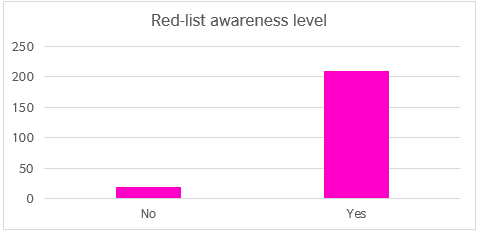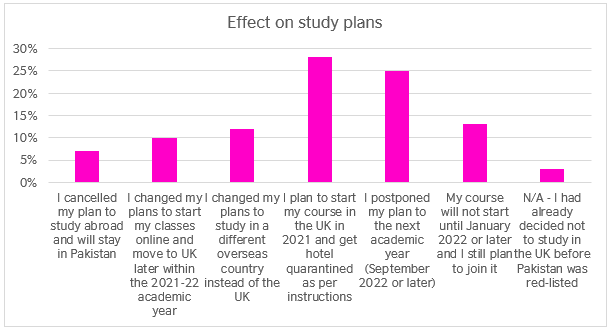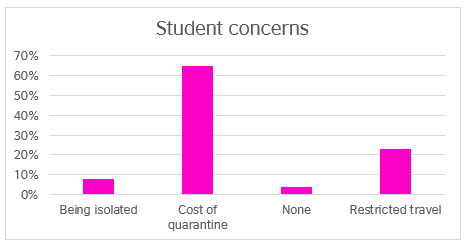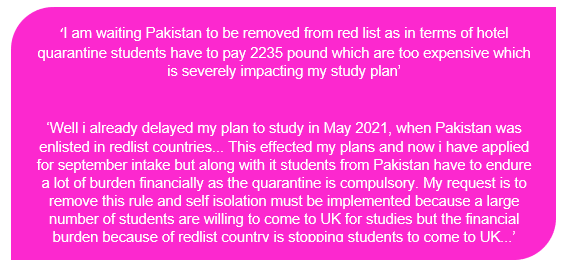
Before the start of the new UK academic session from September 2021 – Aug 2022 and the prevailing red list travel restrictions for Pakistan by the UK government due to Covid numbers, the British Council conducted a dipstick survey with prospective students to assess the impact on their initial plans to study in the UK. The survey was distributed to the prospective international students, Agents and Counsellors’ network in Pakistan. A total of 261 responses were received, out of which 33 respondents indicated no intention to study overseas in the 2021 academic year and one was a duplicate entry. These 33 responses were removed as part of the validation exercise and the revised total of 228 valid responses have been considered from question three onwards, which has been the basis of our analysis and findings of this report.
From the five age-groups categorised for this survey, the 16-19 years old constitute 30 per cent of the total sample and the other four groups of 20-22 years, 23-25 years, 25-30 years and above 30 years are almost more or less in equal proportion but under 20 per cent each in terms of their proportion to the sample.

A significant number of students, that is 86 per cent are originally considering the UK as their choice for overseas studies for the September 2021 - August 2022 academic session. Of these, 51 per cent are aspiring for the UK alone and 35 per cent for both the UK and any other overseas country. In terms of opting for other countries other than the UK, only 2 percent have indicated that as their choice.

Post graduate studies continue to be the popular programme over others, as reflected from the numbers of students, 48 per cent expressing that to be their choice for overseas study this year. This has been the trend in the previous years as well. Undergraduate studies are the second preferred choice with 37 per cent of students indicating that followed by 15 percent for PhD.

Awareness of Pakistan being put on the UK’s red list is very high amongst the students who have undertaken this survey, and it can be expected to be the kind of level of awareness among the general student population aspiring to study overseas. 92 per cent of surveyed students have said yes to the question about their awareness of the red list status of Pakistan. The local media has been covering about red list rules in the last two to three weeks and we also ran communication campaign through our different platforms such as our facebook page, student activities, webinars and symposium.

A large proportion of students said that their study plans had been affected by the red listing. A total of 19 per cent of students said that they had cancelled their overseas study plans or changed their plans to study in a different overseas country since Pakistan was red listed, while a further 35 per cent said that they had delayed their plans to come to the UK – either to later within the 2021-22 academic year (10 per cent) or to the next academic year or later (25 per cent).
Only 28 per cent said that they planned to go through hotel quarantine to start their course in the UK this year, while a further 13 per cent were originally due to start their course in January 2022 or later.

Finally, the cost of quarantine emerges as the main concern for 65 per cent of students, which is a significant proportion and calls for appropriate attention. It is followed by concerns around restricted travel at 23 per cent and feeling of isolation at 8 per cent. Only 4 per cent of students are not affected by any of these factors.


Authored by
Sandeepa Sahay, Coordinator, Education Insight Hub South Asia
Deepika Baruah, Project Manager, Education, India

Add new comment
Please note that comments by non-members are moderated. They do not appear on the site until they have been approved. Comments by registered members appear here immediately. Your email address will not be published. All fields are required.